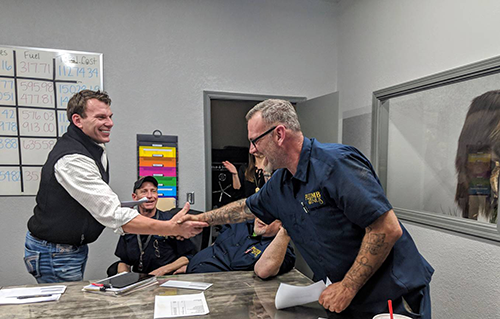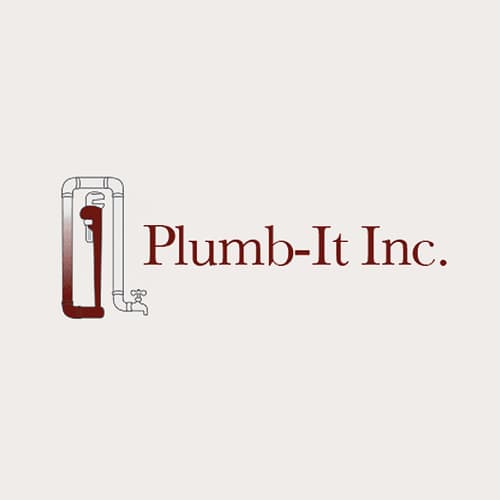- Accreditations & Awards Plumb & Heat Protection
- Accreditations & Awards Plumb & Heat Control
- Accreditations & Awards Plumb & Heat Pump
Accreditation is a third-party attestation related to a conformity assessment body (such as certification body, inspection body or laboratory) conveying formal demonstration of its competence to carry out specific conformity assessment tasks (such as certification, inspection and testing). This site uses cookies and other tracking technologies to assist with navigation, providing feedback, analyzing your use of our products and services, assisting with our promotional and marketing efforts, and provide content from third parties. Our accreditations improve the clinical processes and procedures associated with the early assessment, diagnosis, and treatment of acute coronary syndrome, heart failure, and atrial fibrillation. Organizations of all sizes from large academic facilities to smaller community hospitals have successfully achieved accreditation status.
Working with Hospitals and Hospital Systems
ACC works with single, stand-alone hospitals and hospital systems to improve clinical processes for the early assessment, diagnosis and treatment of Acute Coronary Syndrome (ACS), Heart Failure (HF), and Atrial Fibrillation (AF) and to provide educational information about the management of hospital Observation Services units. The implementation of guidelines and standards is within the reach of organizations of all sizes and we work collaboratively with every organization to ensure that your goals are achievable and your needs are meetable.
The proven value of our operational model is evident in the benefits it delivers to single, stand-alone hospitals as well as hospitals that are aligned with larger hospital systems. So, whether moving forward as an individual hospital or collectively as a group of hospitals, you will work alongside our dependable, collegial, and responsive Accreditation Review Specialists to build better internal and external cardiovascular care processes and, even more importantly, better relationships with the patients and the communities you serve.
Educational accreditation is a quality assurance process under which services and operations of educational institutions or programs are evaluated and verified by an external body to determine whether applicable and recognized standards are met. If standards are met, accredited status is granted by the appropriate agency.
In most countries the function of educational accreditation is conducted by a government organization, such as a Ministry of Education. The United States government instead delegates the quality assurance process to private non-profit organizations.[1] Those organizations are formally called accreditors. In order to receive federal funding and any other type of federal recognition, all accreditors in the US must in turn be recognized by the National Advisory Committee on Institutional Quality and Integrity (NACIQI), which is an advisory body to the U.S. Secretary of Education. The federal government is therefore still the top-level architect and controlling authority of accreditation.[2] The U.S. accreditation process was developed in the late 19th century and early 20th century after educational institutions perceived a need for improved coordination and articulation between secondary and post-secondary educational institutions, along with standardization of requirements between the two levels.[3][4][5]
In higher education[edit]
Accreditation of higher education varies by jurisdiction and may focus on either or both the institution and the individual programs of study.
Higher education accreditation in the United States has long been established as a peer review process coordinated by accreditation commissions and member institutions. The federal government began to play a limited role in higher education accreditation in 1952 with the reauthorization of the GI Bill for Korean Warveterans.[6] With the creation of the U.S. Department of Education and under the terms of the Higher Education Act of 1965, as amended, the U.S. Secretary of Education is required by law to publish a list of nationally recognized accrediting agencies for higher education.

In primary and secondary education[edit]
In the United States, there is no federal government list of recognized accreditation agencies for primary and secondary schools like there is for higher education.[citation needed]Public schools must adhere to criteria set by the state governments, and there is wide variation among the individual states in the requirements applied to non-public primary and secondary schools.[7] There are six regional accreditors in the United States that have historically accredited elementary schools, junior high schools, middle schools, high schools, as well as institutions of higher education.[8] Some of the regional accreditors, such as, Middle States Association of Colleges and Schools, New England Association of Schools and Colleges, Western Association of Schools and Colleges AdvancED, and some independent associations, such as the Association of Christian Schools International[9] and Council of Islamic Schools of North America (CISNA),[10] have expanded their accreditation activity to include schools outside the United States.[11][12]


See also[edit]
Accreditations & Awards Plumb & Heat Protection
References[edit]
Accreditations & Awards Plumb & Heat Control
- ^Dr. Marjorie Peace Lenn, Global Trends in Quality Assurance in Higher EducationArchived 2008-10-29 at the Wayback Machine, World Education News & Reviews, v. 5, no. 2, Spring 1992, pages 1 and 21
- ^Judith Eaton, A Statement from Judith Eaton President, Council for Higher Education Accreditation (CHEA)Archived 2016-06-29 at the Wayback Machine, 'CHEA, CIQG', Research, president-newsletters, June 24, 2016, paragraph 6
- ^The History of the Middle States AssociationArchived 2010-09-24 at the Wayback Machine, The Middle States Association of Colleges and Schools website, accessed October 6, 2010
- ^History of the North Central Association, North Central Association of Colleges and Schools website, accessed October 6, 2010
- ^What Is Accreditation?Archived 2010-09-07 at the Wayback Machine, AdvancED website, accessed October 6, 2010
- ^'Recognition of Accreditation Organizations: A Comparison of Policy & Practice of Voluntary Accreditation and The United States Department of Education'(PDF). CHEA. January 1998. Archived from the original(PDF) on 2010-06-15. Retrieved 2009-11-06.
- ^U.S. Department of Education, State Regulation of Private Schools, June 2000.
- ^'CHEA: Directory of Regional Accrediting Organizations'. Archived from the original on 31 August 2009. Retrieved 20 January 2013.
- ^'ASCI : Accreditation'. ASCI.org. Association of Christian Schools International.
- ^'CISNA : Accreditation Process'. CISNA.org. Council of Islamic Schools in North America.
- ^'Where We Are'. AdvancED. Archived from the original on 2012-09-05. Retrieved 2012-09-08.
- ^Association of Christian Schools InternationalArchived 2012-07-18 at Archive.today Acsi.org
Accreditations & Awards Plumb & Heat Pump
